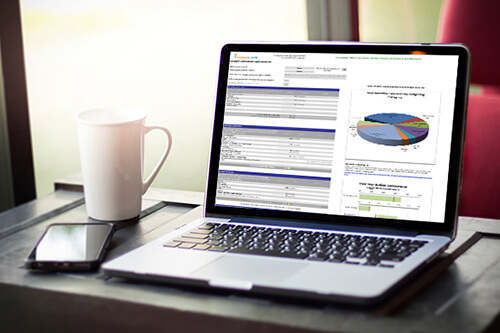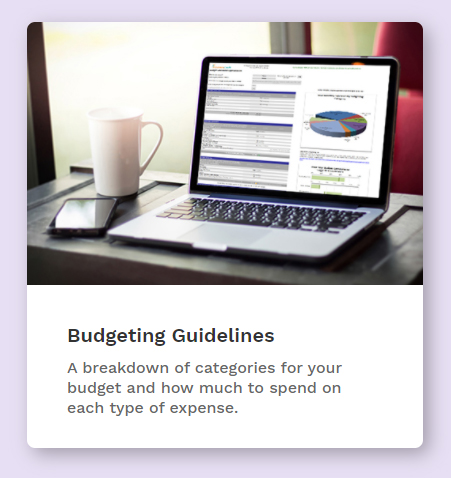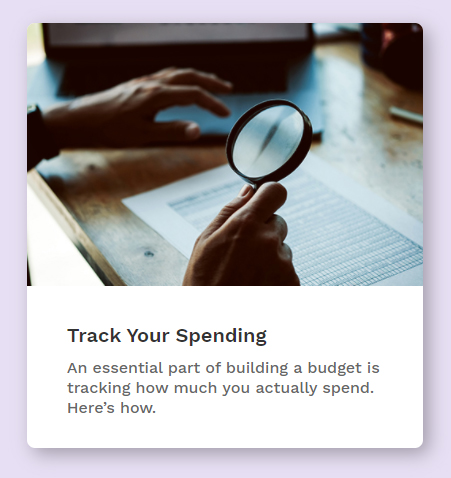How Much Is a Lack of Financial Literacy Costing You?
Tips and Tricks to Improve Your Money Skills
By Monika Ritchie
When it comes to your personal money management, if you’ve asked yourself in frustration, “Why didn’t they teach us about this in school?!” you’re certainly not alone. If you’ve ever struggled over your taxes, tried to decipher the fine print on your credit card bill, or even tried to build a household budget, you know how frustrating it can be if you’re lacking the financial knowledge, skills, and confidence to get started. This lack of confidence can lead to a variety of financial issues, including overspending, debt, and poor credit.
While credit and debt counselling organizations are becoming more prominent, many people, when they want to increase their level of financial literacy, don’t think to seek help from organizations like the Credit Counselling Society to do that. However, along with helping individuals and families deal with their debts, financial education is a big part of what we do. We know that there’s a real cost to not having the knowledge and skills to make informed financial choices. Here’s why it matters and what you can do to ensure a more stable financial future for yourself and your family.
A Lack of Financial Literacy Makes It Harder to Navigate Economic Challenges
With so many Canadians struggling to deal with the high cost of living and their mounting debts, it’s more important than ever to have a solid understanding of how to manage your finances. Unfortunately, a lack of financial know-how can negatively impact your money and overall financial health during a time when both are already stretched thin. That is why an important part of financial literacy and money management is having the confidence to make the choices – even the tough ones – to get you through challenging economic times.
You’re Less Aware of Financial Traps and How to Avoid Them
Let’s be real, most of us don’t sit down with the goal of improving our money skills. However, without a little effort in this department, we could be heading straight for a financial trap and not even know it. Here are a few common money traps and why it’s important to avoid them:
Overspending
Without a clear understanding of how to manage your money and what influences your spending choices, you may find yourself living beyond your means. Credit makes it easy to spend more than you earn, which can lead to mounting debt and financial stress.
What Are Your Bad Habits Really Costing You?
Credit Card Debt
Our credit cards don’t come with instructions, so learning the ins and outs of how to use them wisely can be painful. If you’re using credit cards, inform yourself about the terms and conditions that come with each card, including interest rates for purchases and cash advances, how minimum payments and fees work, if collecting reward points is worth it, and how you can use your credit card without paying any interest ever – before you find yourself racking up high balances that you can’t afford to pay off.
A Low Credit Score
A lack of insight into how we should spend and save our money to achieve our goals can lead to less than healthy financial habits. These habits, over time, can negatively impact your credit score. A low score can make it difficult to rent an apartment and obtain loans, a new cell phone contract, and even some types of insurance. A poor credit score will lead to higher interest rates and tighter terms and conditions, which will cost you more money in the long run.
Credit 101: The Basics About Scores, Reports & Ratings
No Emergency Savings
A rainy-day fund is key to managing an unexpected expense, like a car repair or medical bill, or tying us over if we lose some or all of our income. Learn from the most successful people – build up your emergency savings account little by little, until you have about 6 months of essential living costs saved up for a rainy day.
How to Avoid an Unexpected Financial Crisis
Lack of Retirement Planning
A lack of financial literacy can also impact your long-term financial health. Without understanding the importance of retirement planning, you may find yourself unprepared and struggling to make ends meet when the time comes. Treat preparations for the end of your working years like a marathon, not a sprint, and start as early as you can. Save a little from each paycheque in your RRSP and/or pension, and max out any employer-sponsored matching programs to get the biggest bang for your buck.
10 Steps to Retire Without Debt
Tips for Improving Your Financial Literacy
It’s never too late to improve your level of financial literacy and doing so doesn’t have to break your budget. Keep an eye out for free or low-cost resources, look for free courses within your community, and reach out to a trusted, professional organization to get the information and resources you need without breaking the bank!
- Start with free materials and resources like books, articles, and blogs about personal finance. They’re a great way to get started with basic financial concepts, such as budgeting, saving, and investing.
My Money Coach – Financial Education Website
- Consider taking a personal finance course, signing up for a self-guided program, or attending a workshop on a financial topic that you’re especially interested in. Don’t let free or low-cost pricing deter you. Many organizations offer these priceless, award winning courses to help you gain the skills you need.
- It’s important to use Canadian tools, online calculators, and #finlit resources when living in Canada. The government has launched a special set of resources to help with learning about every aspect of personal finance, including how to protect yourself from fraud.
- Use free online resources to improve your financial knowledge and habits, and manage your money better. There are many online tools available, but some of the best for routine money management might be free with your own bank account. Check with your financial institution before using other apps so that you don’t inadvertently violate the terms and conditions of your accounts.
The Pros and Cons of Budgeting Apps for Canadians
Reach Out to Us for Trusted, Professional Help When You Need to Improve Your Money Management Skills
Reaching out for professional help from a credit and debt counselling organization is not limited to helping you pay down debt. Our financial educators are happy to answer your questions during friendly and engaging webinars and workshops. Our credit counsellors are able to provide you with free resources and guidance, in addition to help with your debts if you need it. Contact us now to start filling your toolbox with what you need to build a stable financial future for you and your family.
Last Updated on April 9, 2025






